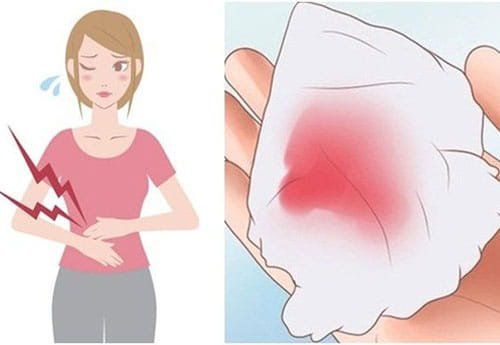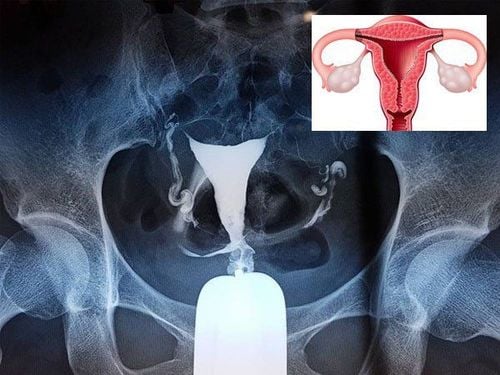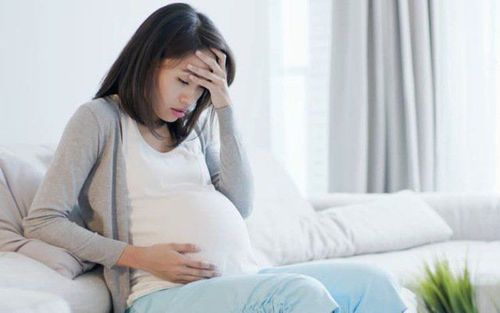This is an automatically translated article.
After giving birth, the menstrual cycle will be changed. It is very normal to have irregular periods while breastfeeding. In women who are breast-feeding, their period will return later after giving birth, while in non-breastfeeding women it will return earlier.1. Menstrual disorders while breastfeeding
Menstruation occurs when an egg is released but is not fertilized. When an egg is not fertilized, the cervix sheds a nutrient-rich blood lining so it can be replaced again before the start of the next month's menstrual cycle.
Menstrual disorders: When breastfeeding in the first 1-2 years, the mother's menstrual period may be erratic, not having a period, some months coming early, some coming later. Usually after giving birth, a woman's menstrual cycle changes. In women who are breastfeeding, about 40% of women have their first period 6 weeks after giving birth, and most women get their period again 24 weeks after giving birth (about 5-6 months). . Women who breastfeed will have a later period because the prolactin in breast milk slows down the menstrual cycle. The timing of the return of menstruation for women after childbirth is quite erratic and very variable. In women who do not breastfeed, their periods will return earlier, but menstruation may still be visible and then amenorrhoea for a few months will return.
Trắc nghiệm: Sự hiểu biết của bạn về kinh nguyệt
Kinh nguyệt có vai trò quan trọng đối với sức khỏe sinh sản, do đó nữ giới cần chủ động trang bị kiến thức để theo dõi và kiểm soát tình trạng sức khỏe. Bài trắc nghiệm sau đây sẽ giúp bạn hiểu hơn về chu kỳ kinh nguyệt của bản thân.2. Menstrual disorders while breastfeeding are dangerous?
When there is a menstrual disorder, the amount of menstrual blood is also irregular, sometimes more or less, the menstrual color also changes, turning bright red, brown or dark black. In addition, it is very easy to encounter cases of menstrual pain and prolonged menorrhagia... Menstrual disturbances while breastfeeding are one of the perfectly normal physiological phenomena and if they do not go away. accompanied by unusual signs such as: bad smell in the intimate area, uncomfortable itching, burning pain during sex... then you don't need to worry too much. It's just the hormonal changes in the body of a nursing woman.

Rối loạn kinh nguyệt khi đang cho con bú có nguy hiểm không?
The case to be noted is that if the mother exclusively breastfeeds without giving anything for the first 6 months, it can help prevent amenorrhea and prevent unwanted pregnancy. But in case if your period has returned, it is imperative to use birth control (eg an IUD) because you may have an unwanted pregnancy, while the menstrual cycle is irregular, so it will be difficult to follow. track. Therefore, this month's delay for many people can be due to pregnancy. Therefore, you should go to an obstetrics and gynecology facility soon to have an ultrasound and check if you are pregnant, if you are pregnant, then the doctor will advise the safest solution, and if not During pregnancy, the doctor will advise on the use of birth control methods when breastfeeding suitable for each person.
However, these abnormalities are only considered to be of no concern if they persist for less than 2 years after childbirth. If after 2 years of giving birth, you still have menstrual irregularities, it is best to immediately go to medical facilities for examination and timely intervention and treatment. Because it is most likely a sign of disease in the female body.
Please dial HOTLINE for more information or register for an appointment HERE. Download MyVinmec app to make appointments faster and to manage your bookings easily.













